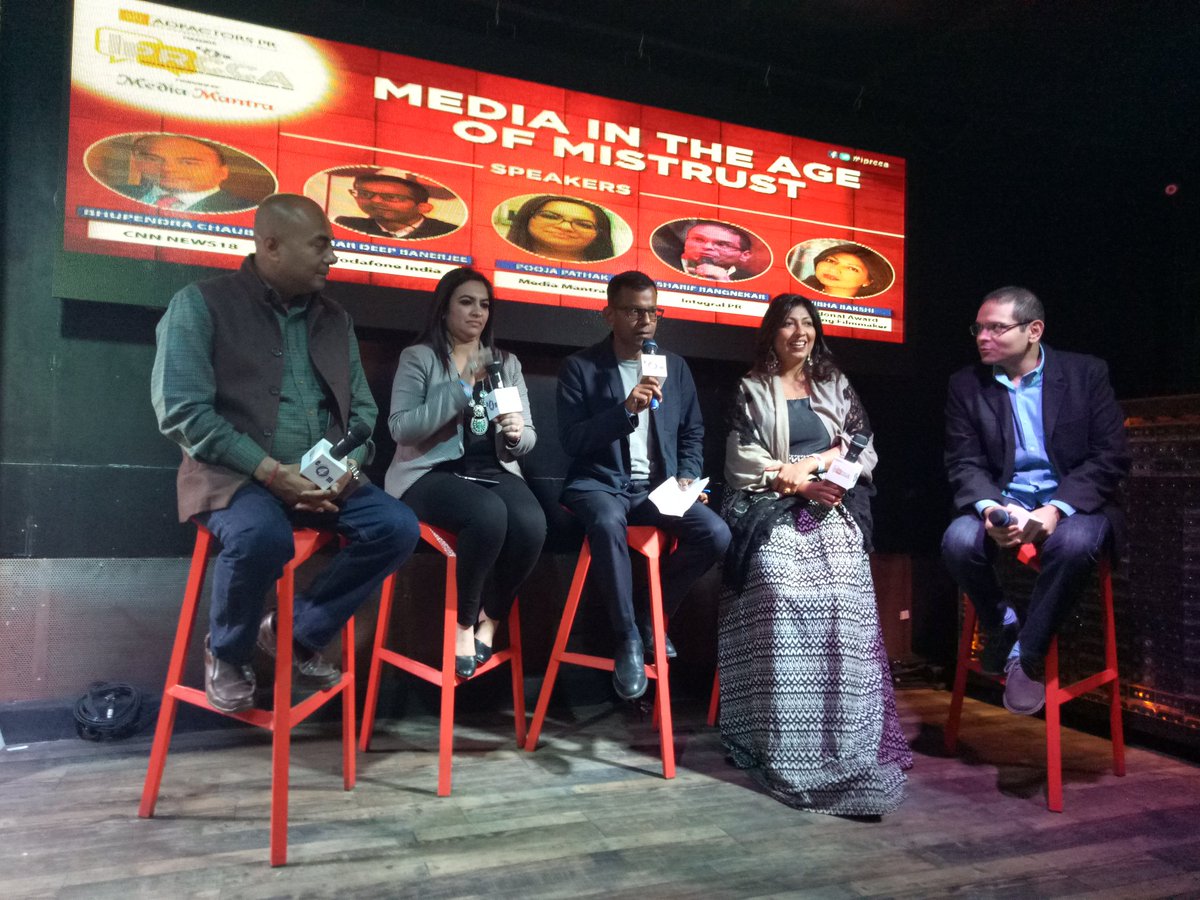IPRCCA 2016: Panel dissects issues plaguing media in the age of mistrust
The seventh edition of Indian Public Relations & Corporate Communications Awards (IPRCCA 2016) witnessed an intellectually stimulating panel discussion moderated by Kumar Deep Banerjee, Head – External Communications, Vodafone India. In the words of Banerjee, the discussion on “Media in the age of mistrust” brought together an “eclectic mix of ladies and gentlemen”.
He initiated the discussion by referring to the words of Denzel Washington who spoke of being “uninformed” if one did not subscribe to the media but “misinformed” in the case one did.
Mistrust & Credibility
Describing the current situation as “alarming” and “crucial”, Pooja Pathak, Co-Founder & Director at Media Mantra felt that there were no bullet point solutions to the same. Emphasizing the need for integrity, she stated that mistrust wasn’t solely a concern for the media.
“The issue of mistrust is across sectors,” Pathak said as she cited the current tussle between Ratan Tata and Cyrus Mistry as an example of corporate mistrust. In the case of the recent surgical strikes in PoK, she suggested that the mistrust had assumed an exaggerated level since certain people had started doubted the narrative of their nation’s army.
On the other hand, Sharif Rangnekar, Chairman, Integral PR, argued that mistrust is not “good for business” though “it might be good” for a few media houses who mislead people. He was clear that credibility was an issue which was more or less to be sorted by the media.
“The problem resides mostly with the press that is owned by corporates,” he said. While PR agencies represented their clients, he added that the Chinese wall that was meant to insulate a newsroom from outside pressures wasn’t functioning well.
Manipulation & Sensationalism
The two non-PR professionals on the panel did not hold back their opinions during the panel discussion which was later on opened to questions from the floor. Addressing the “realities of the times we live in”, CNN News 18’s Bhupendra Chaubey conceded that “some of the best stories” he has done recently came from the “PR industry”.
He frankly admitted that press and PR can “co-exist” and “cooperate”. “I have no problem with a PR person coming and telling me about a story as long as it is factual,” he added. For Chaubey, a cause for worry was the manipulation of social media as he had witnessed the doctoring of Twitter trends. Citing examples of his television shows, he narrated how politically impactful journalism often fails to satisfy the beast called TRPs which recorded an “abysmal” showing.
“Seven times I let my heart decide, three times I let the realities of the times decide,” he concluded as he spoke of opportunities even in these testing times. Filmmaker Vibha Bakshi also brought to the fore some instances from her professional journey to emphasise on the significance of restraint.
“You have to be very responsible as a documentary filmmaker,” she said. While working on her film ‘Daughters of Mother India’, Bakshi noted that she had access to the “Delhi Police command and control room” and could have got “sensational quotes”.
However, she chose not to do so. “We have seen how people sensationalize and get more eyebrows,” she stated while elaborating on how India’s image had been tarnished globally due to sensational documentary filmmaking. She took the opportunity to thank a PR firm without whose support her film ‘Daughters of Mother India’ could not have seen the light of the day.
Moderator Banerjee wrapped up by the discussion by reminding everyone that showbiz necessitated the need to “glamorize facts to an extent” but ethics and core values could not be compromised upon.


